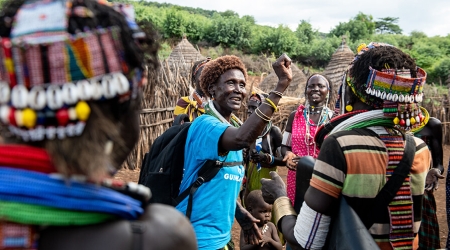
Only 14 human cases of guinea worm disease occurred worldwide in 2021, the Carter Center reported in late January. This is nearly half the number of cases seen in the previous year, and a drastic reduction from the 3.5 million human cases seen in 1985, when the Carter Center took on leadership of the guinea worm eradication program.
This progress is important because “Guinea worm disease incapacitates people for weeks or months, reducing individuals’ ability to care for themselves, work, grow food for their families, or attend school.”
Most remarkably, these reductions in the number of cases occurred despite the ongoing Covid pandemic and regional conflicts.
Carter Center CEO Paige Alexander said:
“Eradication is an approaching reality. The national ministries of health, with our support, have implemented interventions that are working, and the result is a measurable reduction in human suffering and animal infections. That’s what this work is all about. We need to keep pressing to the finish line.“
Guinea worm disease, or dracunculiasis, is a neglected tropical disease (NTD) that is now found in only a few African countries. There is no drug treatment or vaccine, so eradication involves “maintaining community awareness and education,… monitoring for infections, filtering drinking water, and protecting water sources from contamination.”
Read the full article here.
Sources
Carter Center: World Records Fewest Guinea Worm Cases in History of Eradication Campaign
CDC: Guinea Worm Disease
Wikipedia: Neglected Tropical Diseases
